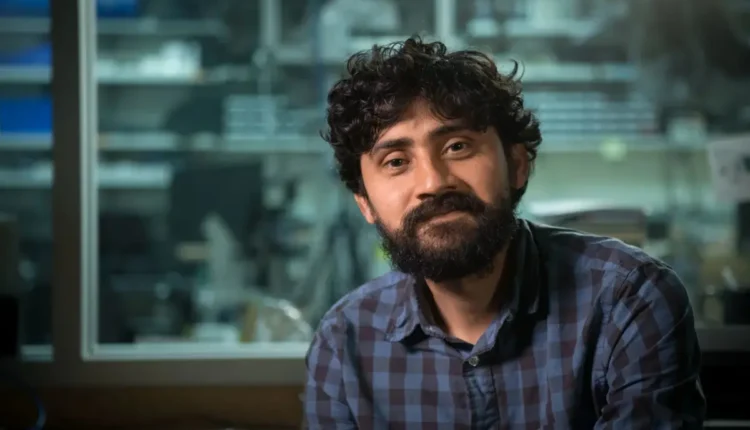When you think of innovation, images of billion-dollar labs and ultra-advanced technologies might come to mind. But what if world-changing science could start with just a sheet of paper, a drop of water, and an unshakable dream?
This is the story of Manu Prakash, an Indian-American scientist whose vision of making science and medicine accessible to everyone has inspired millions across the globe.
Born in Meerut, India, Manu Prakash grew up with a curious mind that saw possibility where others saw limitation. His journey from the bustling streets of India to becoming a professor of bioengineering at Stanford University is nothing short of remarkable—a shining beacon for dreamers and doers alike.
Manu Prakash: The Early Sparks of Brilliance
From a young age, Manu Prakash was fascinated by the way things worked. Unlike most children who would simply play with toys, Manu would often dismantle them, eager to uncover the mysteries inside. This innate curiosity paved his path to the prestigious Indian Institute of Technology (IIT) Kanpur, where he earned his BTech in Computer Science and Engineering.
Not one to be confined by boundaries, he crossed continents to the United States, earning an M.S. and Ph.D. in Applied Physics at the world-renowned Massachusetts Institute of Technology (MIT). But even amid the towering achievements of MIT, Manu Prakash never lost sight of his childhood dreams—making science accessible, affordable, and transformational.
A Mission Rooted in “Frugal Science”
What truly sets Manu Prakash apart is his philosophy of “frugal science”. He champions the idea that impactful scientific tools need not be expensive to be powerful. His work focuses on creating low-cost, high-utility scientific instruments that can be used even in the most resource-strapped environments around the world.
At a time when technology was becoming increasingly inaccessible to large swaths of the global population, Manu Prakash decided to challenge the status quo—not with grandstanding but with humble brilliance.
The Foldscope: Science in Every Pocket
Perhaps his most famous creation is the Foldscope—an optical microscope that costs less than a dollar to make. Imagine a device built from just a piece of paper and a lens, capable of magnifying the unseen wonders of the microscopic world.
Developed alongside his student Jim Cybulski, the Foldscope is lightweight, portable, and incredibly durable—making it a game-changer for education, fieldwork, and even frontline health diagnostics.
Today, millions of Foldscopes have found their way into classrooms, clinics, and remote villages across the globe. Children who never dreamed of seeing a cell or a microorganism now peer into the hidden world of life, their eyes sparkling with wonder and possibility.
The Paperfuge: Fighting Disease with Simplicity
Another testament to Manu’s genius is the Paperfuge, a hand-powered centrifuge inspired by an ancient whirligig toy. Centrifuges are essential for separating plasma from blood—a crucial step in diagnosing diseases like malaria. However, traditional centrifuges are expensive, fragile, and dependent on electricity.
The Paperfuge, in contrast, costs less than 20 cents to produce and can spin at 20,000 revolutions per minute, separating plasma without the need for electricity. In regions where access to lab equipment is scarce, the Paperfuge has become a literal lifesaver.
By democratizing access to critical diagnostic tools, Manu Prakash is not just advancing science; he is saving lives.
Pushing the Frontiers of Innovation
Manu’s work doesn’t stop there. His research group at Stanford recently developed a synchronous computer that operates using the physics of moving water droplets—an entirely new way of thinking about computation, hinting at future machines that could be biological, chemical, and mechanical at once.
His lab, often described as a playground of ingenious ideas, is a testament to how deep curiosity, creativity, and compassion can blend into revolutionary science.
Accolades and Honors: Recognizing a Modern Pioneer
Manu Prakash’s groundbreaking work has not gone unnoticed. In 2016, he received the prestigious MacArthur Fellowship, often referred to as the “Genius Grant,” for his revolutionary contributions to science and society.
He has also been a TED Fellow multiple times, where he shared his passion for “science for everyone” with global audiences, igniting a movement that continues to ripple across continents.
Yet, despite the accolades, Manu remains grounded, always emphasizing that true innovation lies not in winning awards, but in changing lives.
Also Read : T.K. Sabapathy: Shaping the Narrative of Contemporary Asian Art

